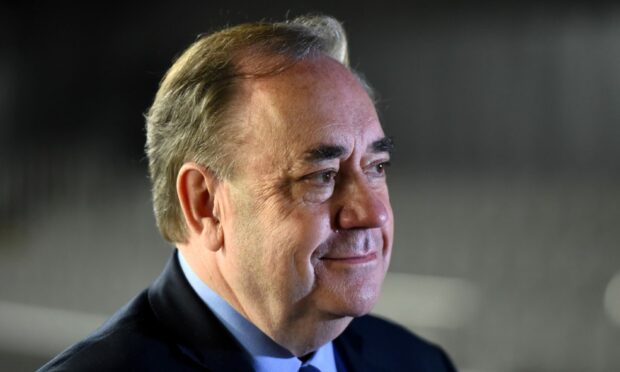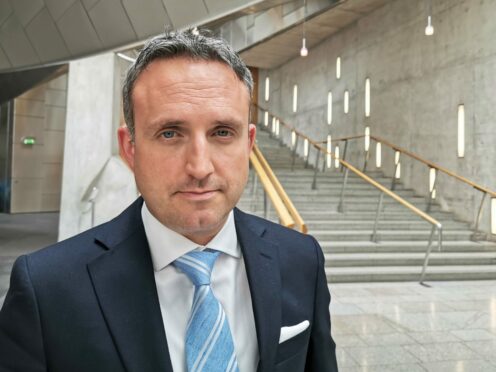Alex Salmond has been urged to quit his chat show on a Kremlin-backed TV station after it was branded “an embarrassment to our nation”.
Scottish Liberal Democrat leader Alex Cole-Hamilton accused the former first minister of “laundering the reputation of the Russian regime”.
Mr Salmond hosts a weekly programme on Russia Today, which is owned by the Russian state, but has been warned not to be Vladimir Putin’s “useful idiot” amid growing concerns over troops stationed on the Ukrainian border.
It comes after Mr Salmond’s Alba Party colleague, Fife MP Neale Hanvey, criticised the UK and US governments for their “determined hyping” of the prospect of a war.
Lib Dem leader’s pledge
Mr Cole-Hamilton stated politicians from his party will not appear on Russia Today and called on all Scottish political leaders to make a similar pledge.
He said: “Being Putin’s useful idiot may have stroked Alex Salmond’s ego and filled his bank account but it’s an embarrassment to our nation that a former first minister could sink so low.
“If Alex Salmond had a shred of regard for human rights around the world he should step aside and quit laundering the reputation of the Russian regime.”
Mr Cole-Hamilton insisted Vladimir Putin’s “propaganda broadcasters” represent a powerful foreign policy tool.
He said: “Putin’s build-up of troops menacing Ukraine’s eastern border is an attempt to compel through force or threat its smaller neighbour to do as it wishes. That is a grave breach of international law.
“This is a dangerous escalation in Russian foreign policy and it should be called out.
“Here in the west, Putin’s propaganda broadcasters represent a powerful tool in his foreign policy arsenal for spreading confusion and disinformation.
“No representative of a Scottish party should be appearing on their channels.
“I hope that the other party leaders will join me in instructing their parliamentarians to reject Putin’s propagandists.”
Watching with growing concern
Mr Salmond’s Alba Party was approached for comment but pointed to the comments made by Neale Hanvey on Monday.
Mr Hanvey, the MP for Kirkcaldy and Cowdenbeath, said he had been watching with growing concern “the apparent and increasing appetite for conflict in Ukraine”.
“In recent days this has developed into a determined hyping of impending conflict with many weekend newspapers running front page headlines that lacked any credible evidence to support such alarm in the copy below,” he said.
“What we have repeatedly heard is assertions from UK and US sources of intelligence that such a conflict is imminent, but again there has been a distinct lack of evidence beyond those assertions when the matter has been pressed.”
He continued: “Memories may be short in some journalistic and political circles, but I know that many have not forgotten the catastrophic consequences of the dodgy dossier that took us to war in Iraq.
“We must not repeat such mistakes and we cannot go to war based on assertions.
“No more clearly has this sentiment been expressed than by Ukrainian president Volodymyr Zelenskiy who stated that he himself has yet to see convincing evidence.
“It is simply inconceivable that we should be ramping up the case for war when the president of the country concerned remains unconvinced that a case for conflict exists.”


